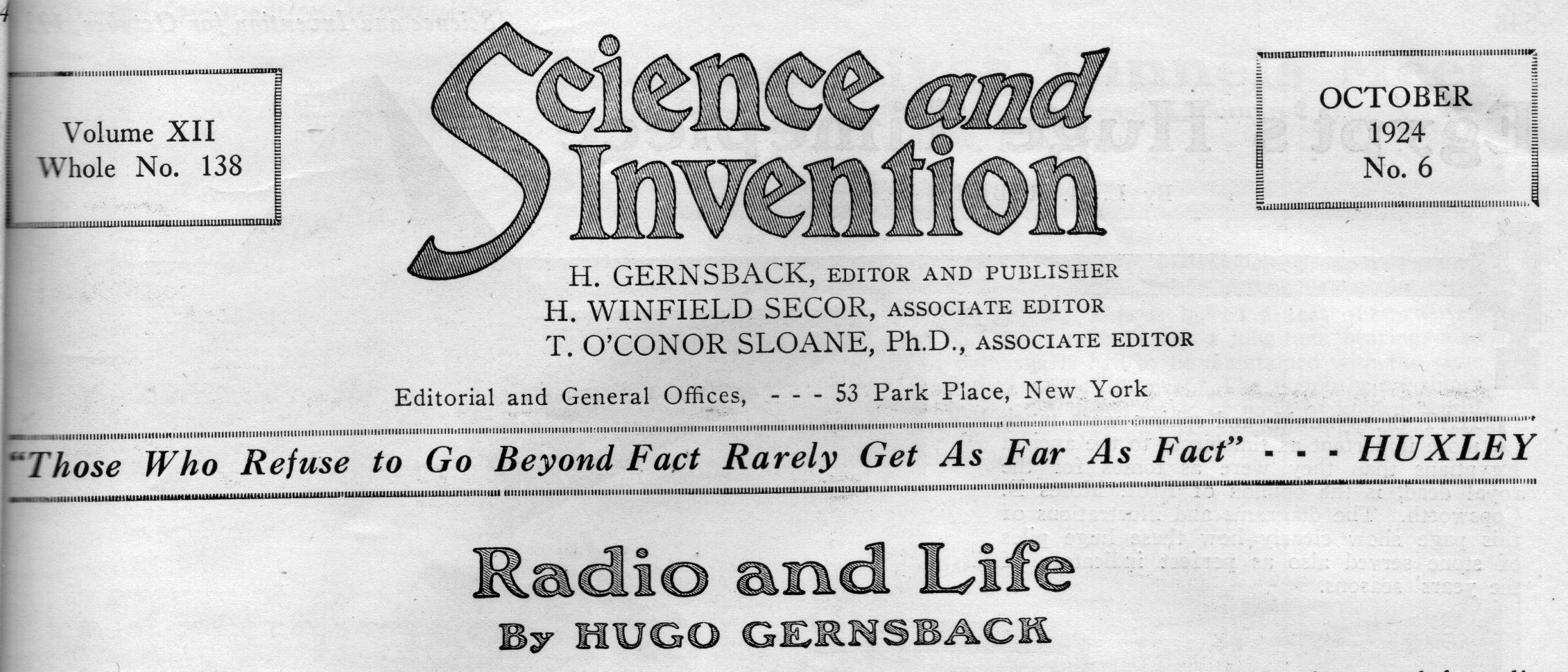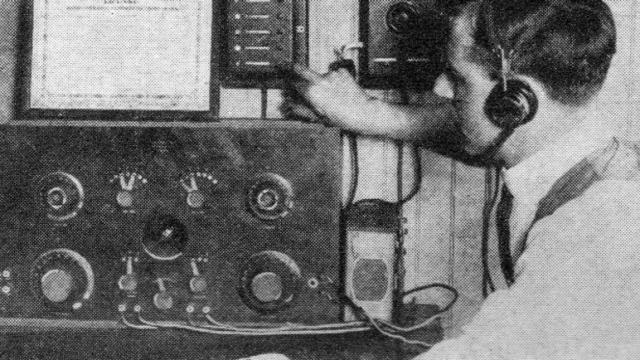New technology is scary. Just ask the people who think that their illnesses are caused by Wi-Fi. But blaming unfortunate things on newfangled technology has been happening for decades, if not centuries. Like when farmers of the 1920s used to blame too much rain, earthquakes and droughts on the new technology of radio.
Radio set from 1924 scanned from the October 1924 issue of Science and Invention magazine
The October 1924 issue of Science and Invention magazine included an article by publisher and editor Hugo Gernsback. Gernsback, now a legend of the science fiction genre, explained that even though some people might blame extreme weather on radio, the science just wasn’t there.
The technology of radio was still relatively new to most people in the early 1920s, so it seems only natural that bizarre beliefs would proliferate. As you can see from the article, however, Gernsback was a big believer in the potential healing power of radio. So he stretched the future benefits of the technology to include things such as lowering blood pressure.
Gernsback’s editorial is a fascinating artefact from the dawn of consumer radio. and I’ve included the entire text below.

Whether there is a cyclone, long extended rain, or, for that matter, a long extended drought or an earthquake, radio is sure to be blamed for the result. Of course scientists scoff at any suggestion that radio can have any effect whatsoever on rain or drought, but it is also true that radio waves no doubt have SOME effect on our atmosphere, but this effect may be compared with an electric fan in the midst of a prairie. The fan will make SOME breeze and create SOME disturbance, but the effect ten or fifteen miles away from the fan will be practically nil. So with radio.
The entire power that is actually sent out into space all over this globe does not amount to more than 5,000 kilowatts, in other words, a power that would light about 100,000 fifty watt incandescent lamps. If in the future this power should amount to a million kilowatts or over there is no telling but that this power might actually have a slight effect upon our atmosphere, but even then it could never be serious enough to interfere with rain or sun. The super-radio ration of the future — when we will send power by radio — and which may radiate into space 500,000 kilowatts will be quite a different matter. Such a super-station would probably keep the immediate vicinity free from rains if sufficiently elevated. It has been shown recently that aviators using electrified sand were able to disperse clouds and actually cut huge holes into cloud banks by this means. It would seem that future radio power stations might clear the air of rain, sleet or snow for possibly a few miles around, but even such huge stations will probably not affect the rest of the atmosphere to any marked degree.
The writer has often been asked “What effect do radio waves have upon the human body?” It is a fact that as you are reading these lines radio waves are passing through your body from all sides. No matter where you are these days radio waves of various frequencies will actually pass through your entire body almost every second of the day. If you are in the open, such waves will surge more strongly through you than when you are in the city. When you are standing alone on a prairie, you will possibly receive the maximum effect of the waves. If you are in the city, surrounded by tall steel buildings, these buildings rather than your body, will absorb most of the radio waves and finally if you should place yourself into a hermetically sealed steel vault, no waves would pass through your body at all.
But what is the effect of these waves upon the human body ? As far as we have been able to observe, directly and indirectly, the effect is practically nothing, or no more than the effect of sunlight on a pane of glass. There must be some effect, but it is very little — that is, with the power that is being employed by the radio stations at the present time; it is so weak that you must amplify it thousands of times in a receiving set in order to hear a single note. The human body itself as far as the radio wave is concerned is a conductor that conducts electric currents fairly well.
If you live right underneath a powerful radio station there would undoubtedly be some effect on your body and this effect would be a beneficial one. It would possibly be of benefit to the human being, that is, if he is under the influence of the radio waves for twenty or thirty years. Under such influence then you would probably not be subjected to arterio-sclerosis (hardening of the arteries). This is the most common pathological condition of man as he grows old. It was discovered by d’Arsonval some years ago that high frequency currents actually had the effect of greatly reducing this ailment (by lowering the blood pressure). Of course there would only be this beneficial action if one were living very close to the transmitting station. One mile away from it there would be practically no effect.
About fifty or one hundred years from now with super-radio stations generating millions or billions of kilowatts, the situation will probably change. The beneficial action will then be felt by everyone no matter where located on this globe. Furthermore, the high frequency currents will have become sufficiently powerful to have a vitalizing effect on every human being. We will all be electrified then — in the full meaning of the term. Not only man, but plant life will also be greatly stimulated as recent high frequency experiments on plants have shown. Our crops and plants will grow probably two to ten times as quickly and the crops will be more productive under this electrification. The super radio power stations will then also locally control the weather. If rain is required in a rural section, its radio power station will shut down for one or two days during the week, to allow rain to fall.
